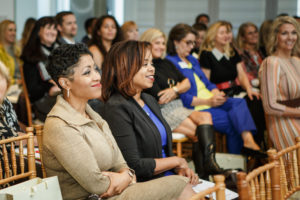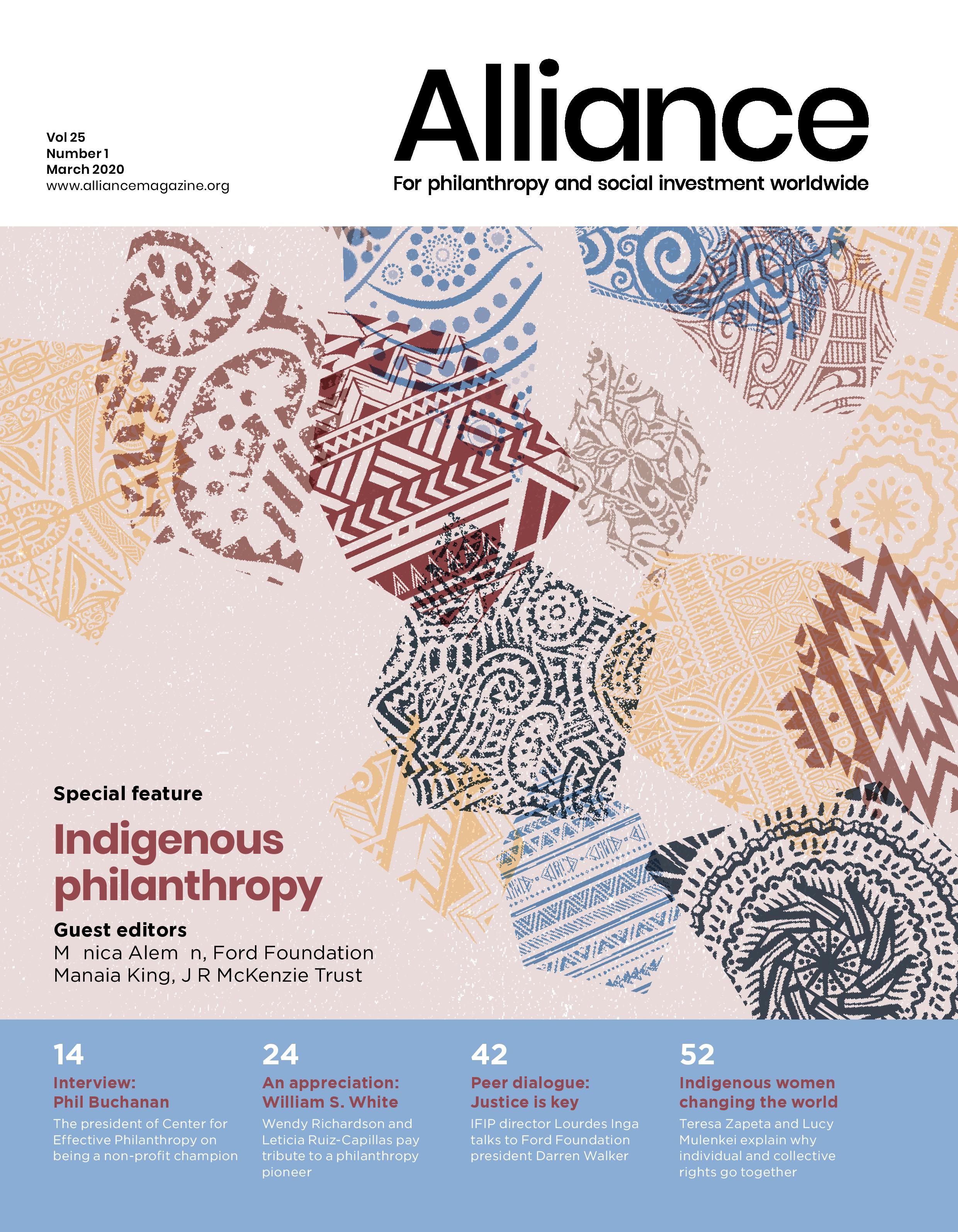The time is ripe to push for gender equality and social change. Women’s funds hold the key
When Melinda Gates made her groundbreaking pledge of $1 billion to address gender equality in the US last year, she noted ‘a window of opportunity’ to grow women’s ‘power and influence’. She rightly credited this opportunity to the efforts of millions of women and the rise of women-driven social movements. Empowered women running for office and advocating for the rights of the marginalised are crucial to advancing gender equality. Gates also pointed out a simple truth – this opportunity has a shelf life and now is the time to seize it. Such fleeting opportunities to create significant social change come along once every few generations. So, how do we capitalise on it?
The challenge facing women’s funds now is to drive change as a funding movement while maintaining the ability to empower women in their local communities.
Up to now, the picture has not been encouraging. The Women & Girls Index, released by the Women’s Philanthropy Institute (WPI) at the Indiana University Lilly Family School of Philanthropy in 2019, found that organisations dedicated to women and girls received only 1.6 per cent of all charitable giving in 2016. Though women’s funds do much to fill the gap in giving to women and engage in activities beyond grantmaking to amplify impact, overlooking and underestimating women has been a failure of philanthropy for decades.
In order to seize the moment, we need feminist philanthropy with women’s funds at the helm.
Specifically, we must expand the capacity of feminist philanthropy and women’s funds through increased support from women donors and larger grantmaking foundations. We must collaborate more in order to build movements across women’s funds. We must embrace and expand the use of intersectional feminist approaches to philanthropy and we must increase knowledge about feminist philanthropy through research, not only on women’s funds, but on women as donors and beneficiaries.
Collaboration and solidarity
There are signs of progress. Four foundations recently announced a five-year initiative to invest $20 million in women’s funds, and the Bill & Melinda Gates Foundation awarded a $1.69 million grant to the Women’s Funding Network (WFN). The purpose of the Gates grant is to form a coalition of women’s funds to advance the economic mobility of women. Both investments establish these organisations as important anchor institutions with the potential to transform not just the lives of individual women, but society and culture more broadly.

WPI event in Charlotte, US.
Historically, women coming together in solidarity and unity of purpose have succeeded in creating real change. According to WPI’s 2019 reports, Women’s Foundations and Funds: A landscape study and Change Agents: The goals and impact of women’s foundations and funds, women’s funds excel at empowering women and fostering positive change that further benefits children, families and communities.
In Alliance’s special feature on feminist philanthropy last year, Dr Awino Okech highlighted the invaluable work of African women’s funds to promote a ‘feminist understanding of gender equality’ and recognise the need for long-term funding for organisations working towards gender equality in the Global South. Dr Okech further emphasised the advocacy efforts of women’s funds to encourage foundations and governments to adapt their policies and funding approaches to reflect the advances made.
Policy change through the advocacy efforts of feminist philanthropy and women’s funds working together on issues like women’s economic mobility could manifest in unprecedented ripple effects.
The challenge facing women’s funds now is to drive change as a funding movement while maintaining the ability to empower women in their local communities. Spearheading collaboration and coalition-building across multiple women’s funds are women’s giving networks such as WFN and Catalist. Greater collaboration and movement building are still needed.
Beyond grantmaking
WPI’s research shows that a portion of women’s funds are active in the policy realm, and some have achieved policy successes in their communities and states. Policy change through the advocacy efforts of feminist philanthropy and women’s funds working together on issues like women’s economic mobility could manifest in unprecedented ripple effects.
Intersectionality and consciousness raising define feminism today. WPI’s 2019 Change Agents report revealed that women’s funds demonstrate intersectional approaches to philanthropy, including the use of research to educate others, such as community and policy leaders, on the status of women and girls.
Future research must involve the organisations that receive grants, and account for the voices and experiences of the women they support.
Intersectionality is not a widely known or understood concept. Yet, intersectional approaches are inclusive, innovative and have the potential to transform philanthropy. It is incumbent upon women’s funds and feminist philanthropists to educate others about intersectionality and how to practically apply this concept in organisational settings and as donors.
Future directions for research
In her 2019 book, Invisible Women: Exposing data bias in a world designed for men, Caroline Criado-Perez shows how the relative lack of gender-based datasets maintains a culture that suppresses women’s voices. Without such data, research on sustainable social change is not possible and while WPI has pioneered knowledge building through ten years of research on women’s philanthropy, including women’s funds, there is much more to learn about these groups and feminist philanthropy.
New research from WPI has catalysed understanding of the goals, practices, and impact of women’s funds. Future research must involve the organisations that receive grants, and account for the voices and experiences of the women they support.
Women helping women has always been at the heart of the feminist movement. Today, women’s funds embody this practice as philanthropic leaders for women and will be vital in moving feminist philanthropy and gender equality forward in the 21st century.
The author wishes to thank Tessa Skidmore for her contribution to this article.
Elizabeth Gillespie is completing her doctorate at the University of Nebraska.
Email: egillespie@unomaha.edu
Twitter: @BethMGilleie







Comments (1)
I am a Journalist by profession, and I am coordinating a Crisis Resolving Centre in Tanzania. This is a legal aid centre where we supported women and children by providing legal aid, legal education and counselling services. We have documented so many cases with successful judgement to our GBV victims. We are planning to produce an online newsletter where we can document success news and share. For a month we use to receive about 60 to 80 cases and 90% successfully done. Meanwhile, there is all the reasons that makes us planning to document properly these good cases as they will motivate others. Please support us,